What to do if someone gnaws carrots in the ground and how to deal with them
A rich harvest of juicy and smooth carrots is the desire of every gardener. But it happens that someone starts to eat it with great speed. These could be insect pests or small rodents. In this article we will talk about who gnaws carrots in the ground and above and how to deal with them.
Who eats carrots in the garden
In addition to the vole, which leaves tunnels in the ground and gnaws large cavities in root crops, various insects can harm carrots: carrot fly larvae, naked slugs, wireworms, mole crickets, fall armyworms, etc.
If any damage is detected on carrots, you must immediately take measures to eliminate the pest, otherwise there is a risk of being left without a harvest. Let's consider who eats carrots on the ground and under it.
In the ground
The following pests are dangerous to root crops underground:
- carrot fly – the second generation of larvae gnaws at roots and tops, especially active from mid-July to the end of August;
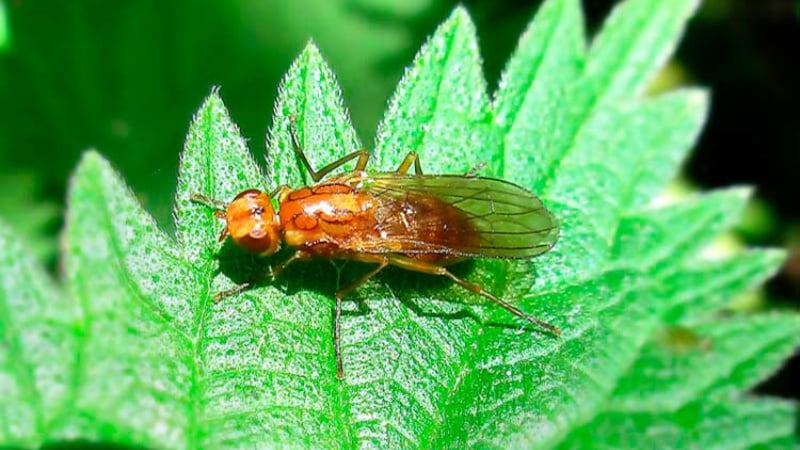
- root-knot nematode – prolific roundworms, it is almost impossible to completely destroy the area;
- field mice – rodents make an underground passage to the garden bed and completely destroy the crop in 1-2 weeks;
- mole cricket – large insects 3-5 cm in length, adults and larvae gnaw through roots and stems;
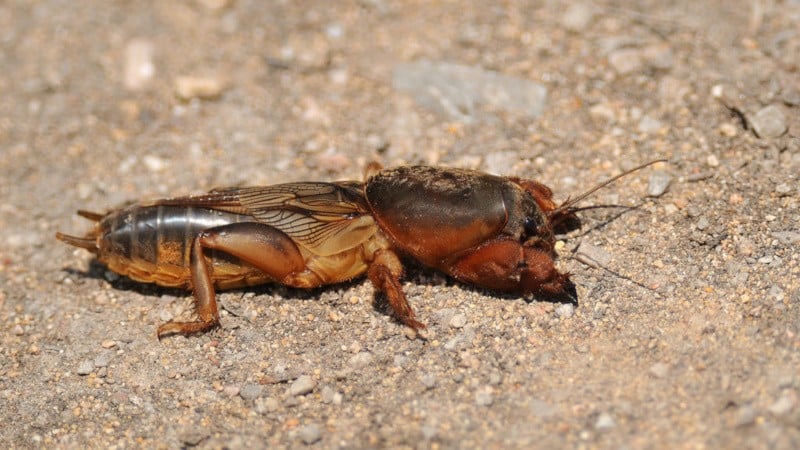
- mole rat – the rodent digs deep holes, immediately eats the tops, and stores root crops for the winter;
- wireworm – damages root crops, feeds on carrot juices, making it vulnerable to diseases.
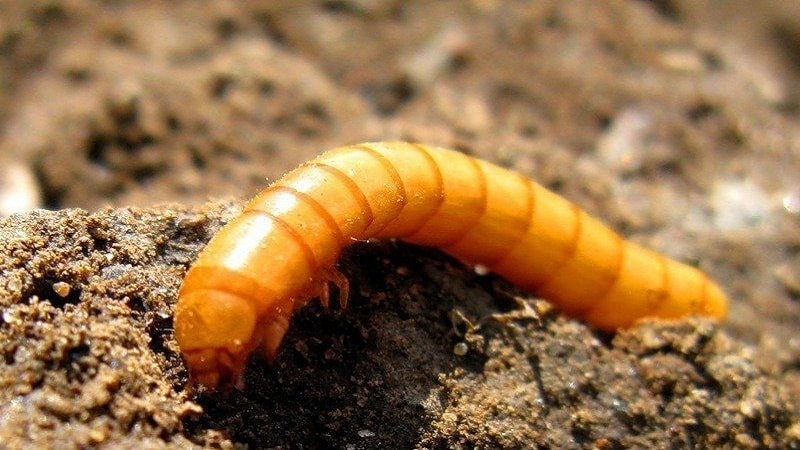
On the bed from above
On top of the bed, carrots are actively eaten by insect pests:
- carrot psyllid – small insects sucking juice from leaf petioles;
- fall armyworm – caterpillars gnaw at the bases of leaves, which leads to the death of plants;
- garden moth – the larvae feed on carrot tops, destroying the plants.
How to deal with them
If you choose the right control agent, the carrot crop can be protected. We recommend using a set of measures: agricultural techniques, traditional methods, chemicals.
Traps
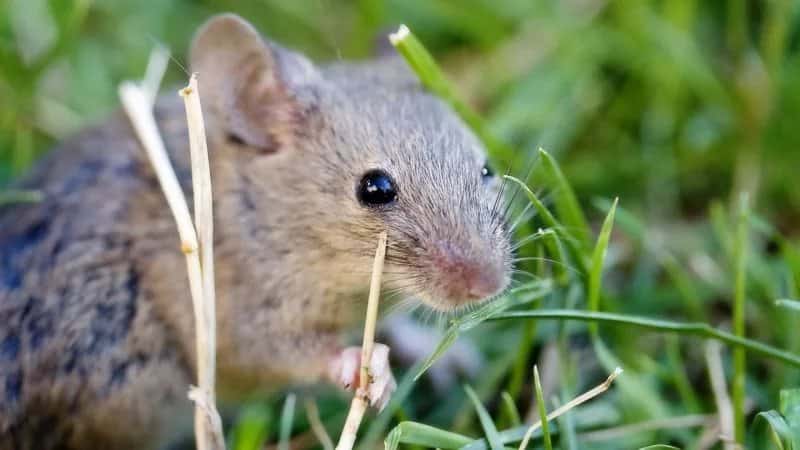
Summer residents are faced with a problem when voles and mole rats make moves in the ground and destroy crops. To get rid of them, you can purchase a ready-made rodent trap in the store or make one yourself.
To do this, take a three-liter jar (for a mole rat, choose a larger container), generously lubricate the inner walls with vegetable oil, put in a piece of cheese or sausage and place it on the bed so that the neck looks slightly upward. The rodent will want to taste the bait, will climb inside the jar, but will not be able to get out back along the slippery walls of the container.
There is an inexpensive and effective glue trap. It is simple to use: just apply glue to a small board and place it on a bed with carrots. A vole, coming for vegetables, will stick to it and will not be able to drag away the heavy board, so it will be caught.
Chemicals
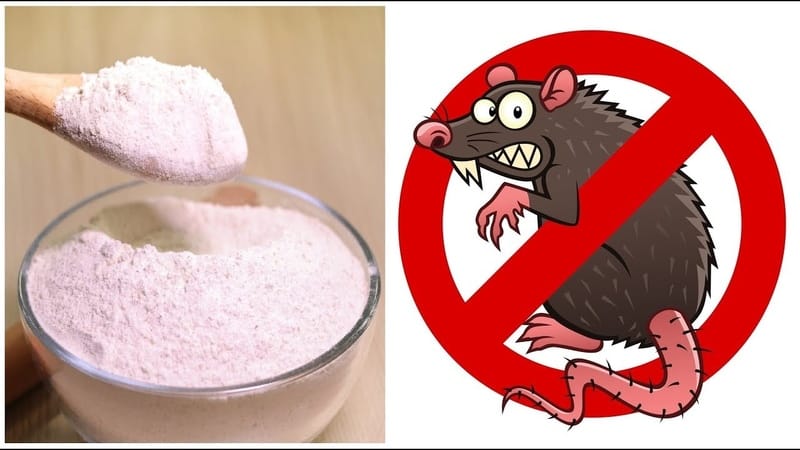
To get rid of from mice and other rodents in a carrot bed, some gardeners use poisons - for example, Phostoxin. Such products are sold in the form of drops, powder and granules. Dry chemicals are laid out on the garden bed, and liquid chemicals are dissolved in water and irrigated the soil.But using poisons in the garden is not the best solution, since other animals may also suffer if they eat them by mistake.
To eliminate carrot flies they use chemicals “Ziper”, “Shar Pei”, “Arrivo”.
For destruction wireworm You can use ammonia-containing fertilizers: ammonium nitrate, ammonium chloride. Liming the soil also helps.
Nematodes are removed means "Dekaris" - dissolve one tablet in 1 liter of water and water the plants several times.
This is interesting:
What type of worms is the onion nematode, and how to fight it.
Folk remedies
Mice cannot tolerate the smell of ammonia, birch tar and smoke. To combat them, gardeners moisten small rags with ammonia or birch tar and place them in different parts of the garden bed. Or at night they place a small bucket of smoldering coal near a greenhouse or carrot bed: mice will smell the smoke and it will scare them away.
Interesting. Pets help fight rodents on the site, and not only cats, but also dogs perform well in this capacity.
When the beds are only slightly affected by psyllids, you can use the following means:
- citrus peels;
- tobacco dust;
- coniferous branches.
It is enough to spread them between the beds - the smell will repel the insects and the harvest will be preserved.
Garden moths are destroyed with a decoction of tomato tops. This will require 3.5 kg of tops and 10 liters of boiling water. The greens are chopped, placed in an iron container, simmered over low heat for half an hour, and a little laundry soap is added. Leave for 2-3 days, then treat the plantings.
You can fight a mole cricket:
- using kerosene;
- using washing powder;
- tincture of mustard, black pepper and alcohol.
Preventive measures boil down to deep digging of the soil and loosening it between the rows.
The way to fight carrot flies is to take ash, slaked lime and tobacco dust in equal proportions, mix all the ingredients and scatter them between the rows. At the same time, the soil is regularly loosened.
other methods
There are electronic and ultrasonic repellers that are effective and safe for humans and pets. You can purchase them in specialized stores for gardeners. Such devices repel voles and other small rodents that damage vegetables. However, they are not capable of killing the animal: the devices affect the central nervous system.
To get rid of psyllids They use non-woven material, which is used to cover the bed, having previously poured tobacco or treated the soil and plants with a soap solution.
Root nematode It is dangerous because it can get used to different methods of fighting. Therefore, there is no one way to kill root-knot nematodes. The main methods of control include preventive measures: working with clean tools, treating the soil with formaldehyde.
Tips and tricks from experienced gardeners
Experienced gardeners share their recommendations on how to preserve the harvest with minimal losses, and what preventive measures to take.
Ivan, Lomonosov: “I have my own small plot of land and little grandchildren who love to dig in the ground. Their favorite treat is carrots. I only grow proven varieties. One day I encountered an invasion of voles that ruined my harvest.After reading reviews on the Internet about repellers, I decided to save money and make my own version. I drove several pegs near the garden bed, pulled a fishing line and hung empty cans on it. Mice are very shy and afraid of any noise. At the slightest breath of wind, the cans begin to knock against each other. This helped me get rid of the annoying voles and I was able to save the harvest.”
Sergey, Perm: “The mouse problem has affected my relatives and friends. I purchased repellents, bought poisons, but the results were not as long lasting as I would like. I ended up planting elderberries, mint, anise and parsnips near the carrot bed. The mice disappeared. They cannot stand the smell of these spices. Now I plant this greenery every year, and there are no problems with rodents.”
Ekaterina, Tver: “Before, my carrots were periodically attacked by the carrot fly, and the harvest volume decreased significantly. A neighbor advised treating the garden bed with tobacco and soap solution. I tried it and it really helped. Now I do this as a preventive measure, I irrigate the beds with the solution as soon as the first shoots appear. I simply scatter the tobacco around the entire perimeter of the garden bed.”
Conclusion
Growing carrots is not difficult; it does not require much time or effort. And when insect pests or small rodents appear, it is enough to use folk remedies or set traps in time. In extreme cases, it is permissible to use chemicals with precautions.